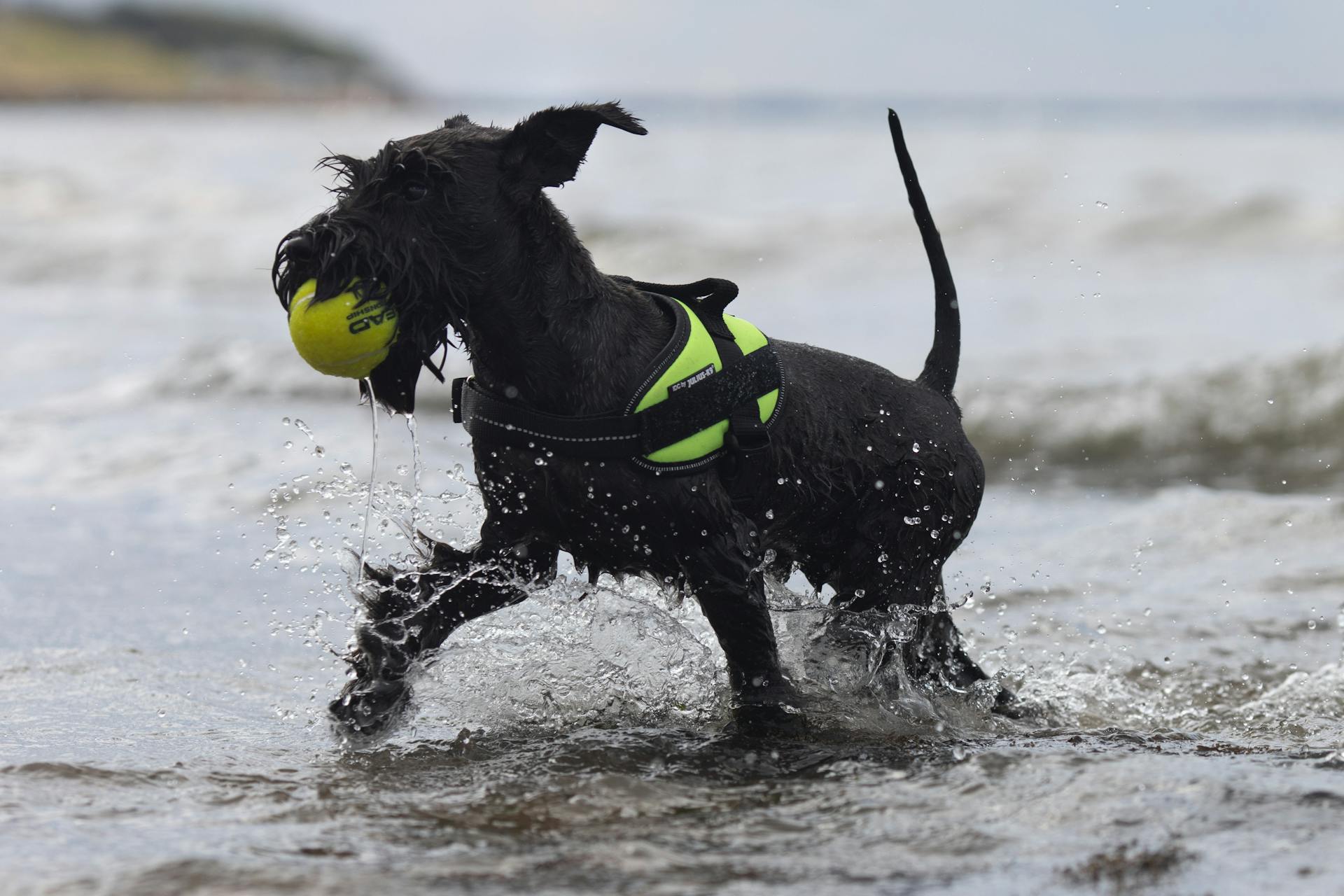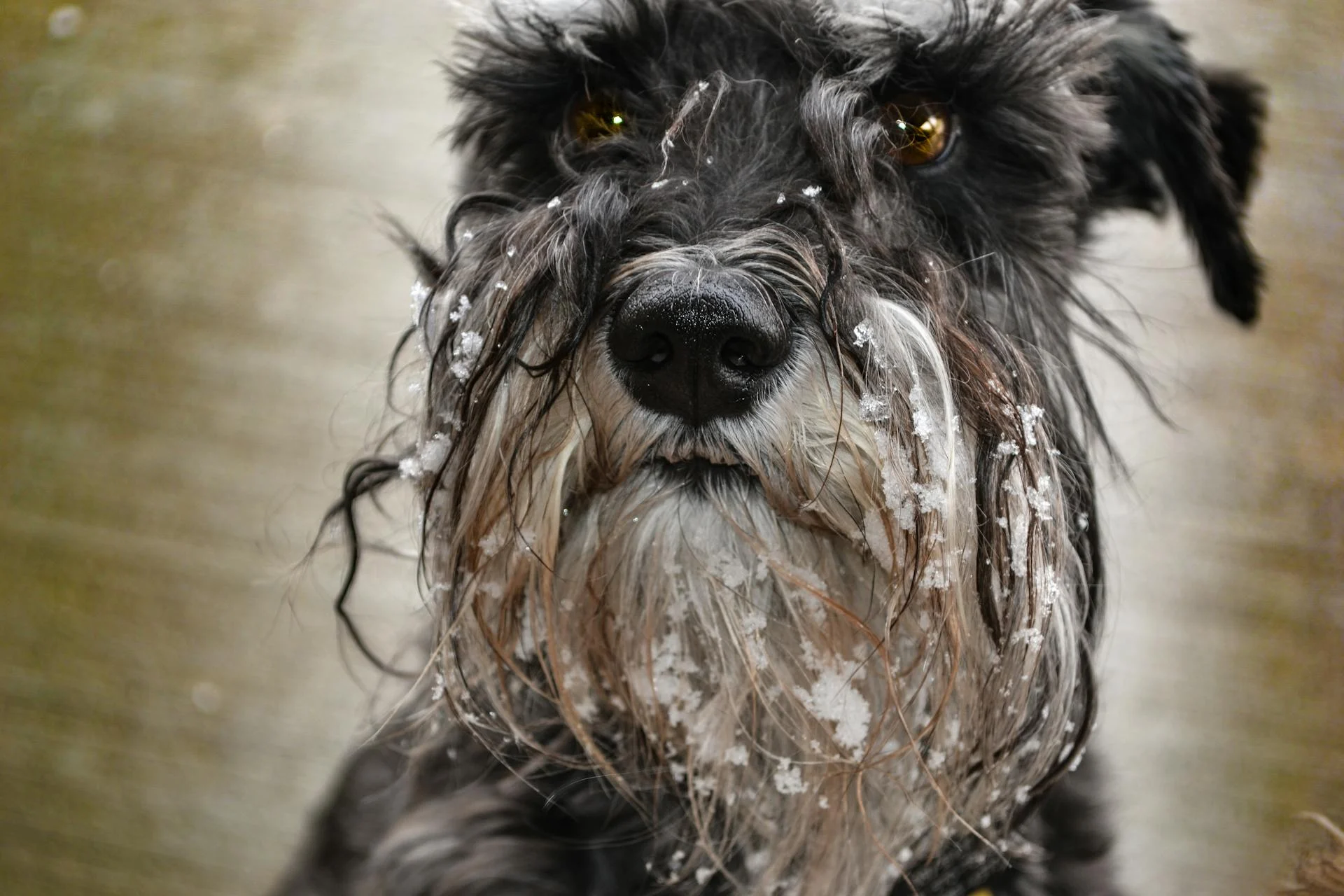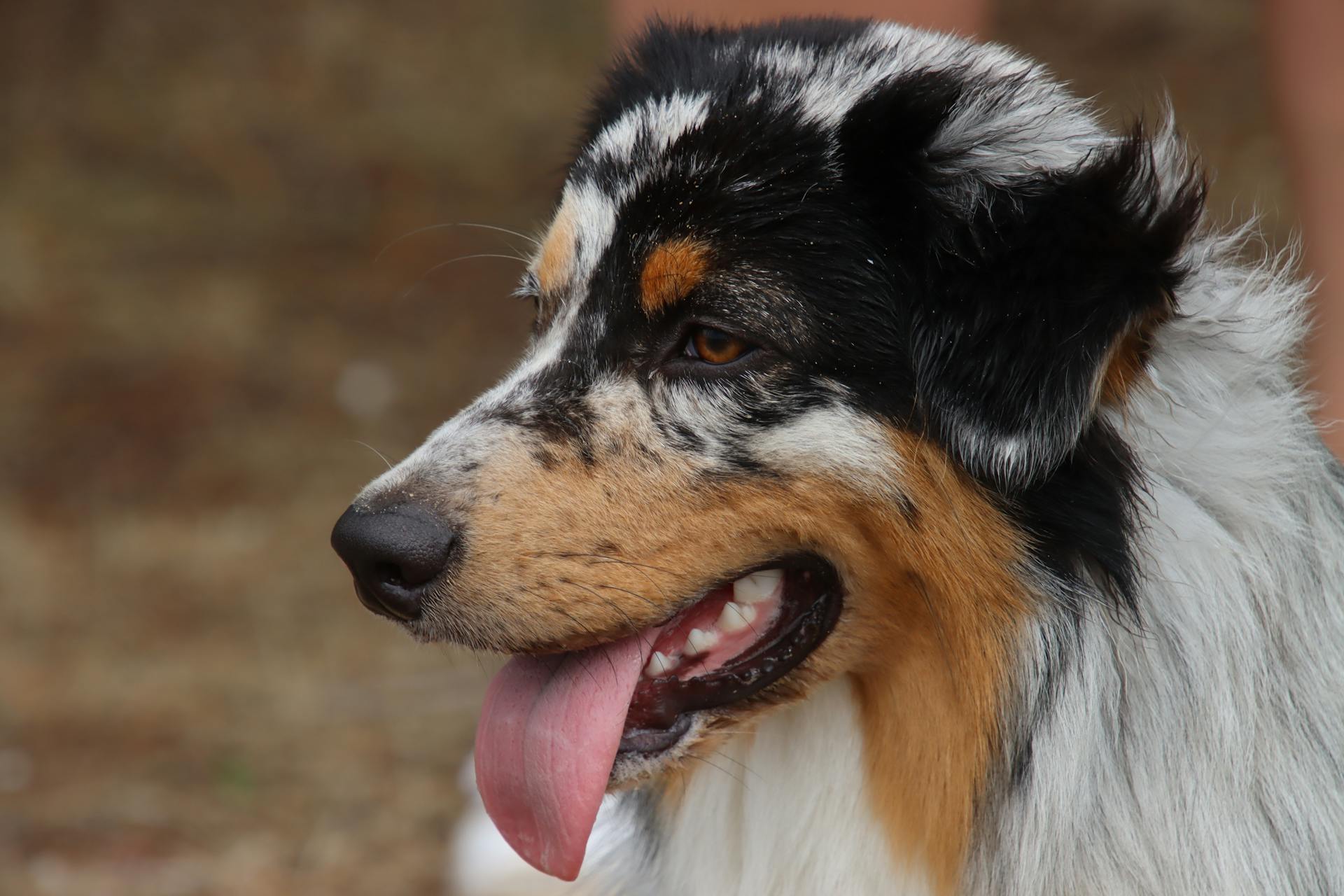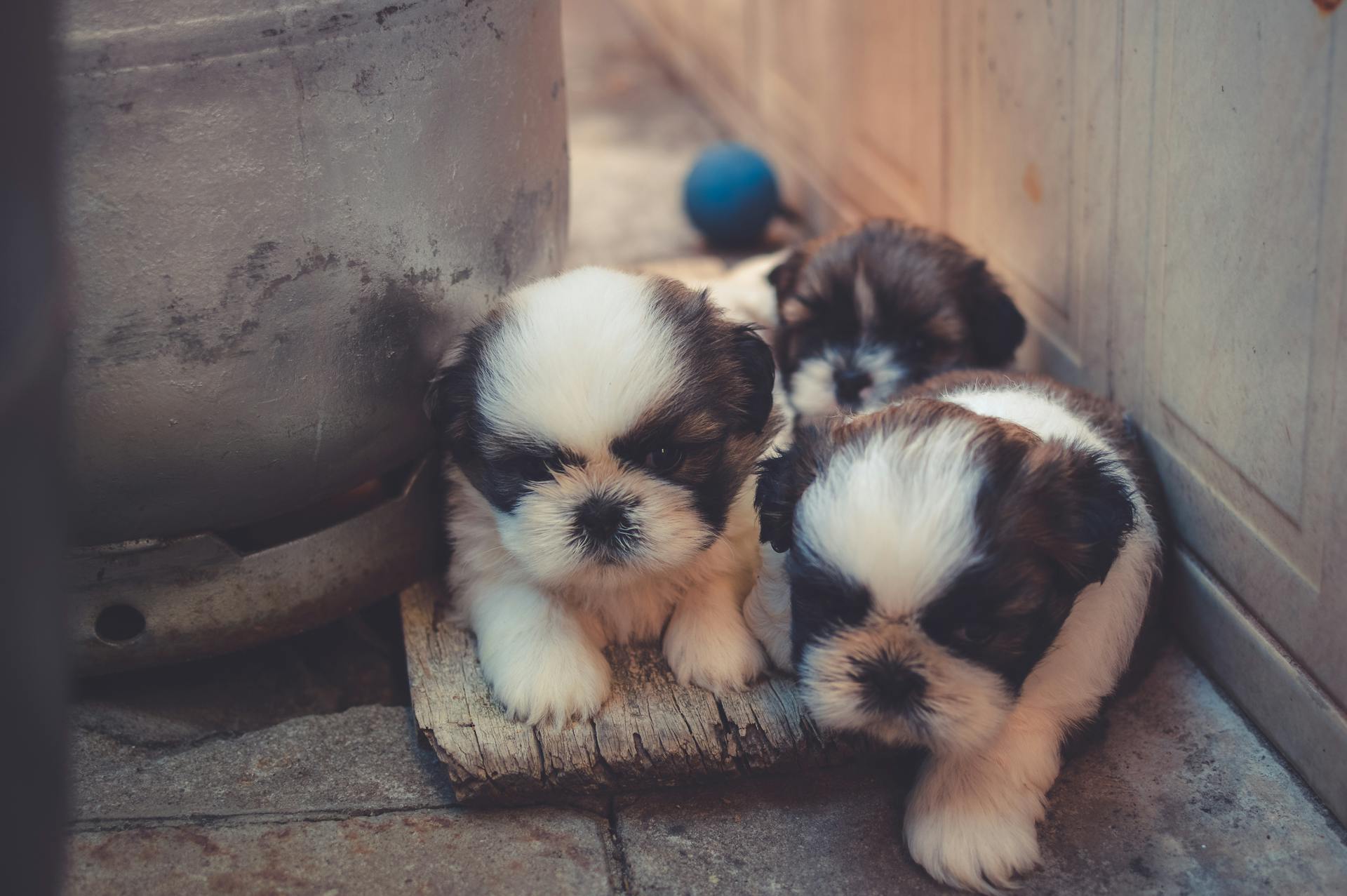
Training a Miniature Schnauzer from puppyhood to maturity requires patience, consistency, and positive reinforcement.
Start by establishing a routine that includes regular feeding times, exercise, and play. This helps your puppy feel secure and develop good habits.
Miniature Schnauzers are intelligent dogs that thrive on structure and clear communication. They are also naturally protective of their family, making early socialization crucial.
Housebreaking is a key aspect of training, and Miniature Schnauzers are generally easy to train in this area. They tend to be clean animals and can learn to go potty outside with minimal supervision.
Preparation
Before you start training your Miniature Schnauzer, make sure to research their temperament and training needs. It's essential to understand their energy levels, intelligence, and any breed-specific quirks.
Designate a specific area in your home or yard as a training space, and let other family members know that it is off-limits when you're training. This will help you avoid distractions and create a safe and comfortable environment for your dog.
Stock up on healthy treats, a clicker if you choose to use one, a leash, a collar or harness, and any other necessary training equipment.
Overview

As you prepare to bring a Miniature Schnauzer into your family, it's essential to understand their unique needs and personality traits. This breed is bursting with energy and a flair for mischief, so be prepared for a fun-loving companion.
Miniature Schnauzers are highly social dogs that thrive on attention, so they require plenty of interaction and playtime. They're happy to meet new people, but may take some time to warm up to other dogs, making early socialisation a must.
To ensure a smooth transition for your new furry friend, it's crucial to remember that Miniature Schnauzers have a high prey drive and aren't well suited to households with cats or smaller mammals and birds. This means you'll need to take extra precautions to keep them safe and separate them from potential prey.
Here are some key things to keep in mind when preparing for a Miniature Schnauzer:
- They need plenty of attention and interaction.
- Early socialisation is crucial to help them warm up to other dogs.
- They're highly intelligent and usually easy to train, but may require a firm and patient hand due to their stubborn streak.
- They make great family pets and usually get on well with children, but always keep them under close supervision.
- They have a high prey drive and aren't well suited to households with cats or smaller mammals and birds.
Get Essential Equipment
To get your Miniature Schnauzer training off on the right foot, you'll need some essential equipment. Start by stocking up on healthy treats, as they'll be a crucial motivator for your dog during training.
A clicker is also a good idea, especially if you're planning to use positive reinforcement techniques. Designate a specific area in your home or yard as a training space.
This will help minimize distractions and keep your dog focused. Ensure that your training space is safe and comfortable for your dog, with no hazards or obstacles to trip over.
A leash, collar, or harness will be necessary for walks and outings.
Training Basics
Teaching your Miniature Schnauzer basic commands is essential for their training. Start by teaching them "sit", "stay", "come", and "lie down." Focus on positive reinforcement techniques and avoid punishment at all costs.
Rewarding good behavior is key to successful training. Use treats, praise, and play to motivate your Miniature Schnauzer to repeat desired behaviors.
House Training
House training is a crucial part of raising a well-behaved Miniature Schnauzer. A consistent routine for bathroom breaks is essential to prevent accidents.
Develop a schedule that works for you and your dog, and stick to it. This will help your Miniature Schnauzer learn when it's time to go outside and do its business.
Crate training is also a great way to prevent accidents and give your dog a safe space to relax. A crate can be a lifesaver when you're not home to supervise.
Expand your knowledge: Crate Training Potty
House Train Them
Develop a consistent routine for bathroom breaks to help your dog learn to go at the right times. This will help prevent accidents and make house training easier.
A crate can be a helpful tool in preventing accidents, especially if you're not home to supervise. Crate training benefits every dog and is a kind way to ensure that your dog doesn't have accidents in the house.
Reward your dog for eliminating in the appropriate area, such as the yard or a designated potty spot indoors. This positive reinforcement will help your dog learn to go in the right place.
A crate is also a place where your dog can retreat for a nap, which is especially helpful for dogs that get anxious or overwhelmed. Never stick your dog in a crate all day long, however, as it's not a jail and should only be used for short periods of time.
Readers also liked: How to Train a Miniature Schnauzer Not to Bark
Be Consistent
Consistency is crucial in house training your Miniature Schnauzer. Establish clear rules and boundaries, and ensure that everyone involved in your dog's care follows them consistently.
Develop a consistent routine for bathroom breaks, and use crate training or confinement to prevent accidents. Consistency will help your dog learn quickly.
A consistent routine means taking your dog out at the same times every day, such as after meals and naps. This will help your dog learn when it's time to go.
Remember, consistency is key, and it's essential to stick to your routine even on weekends or days off. Consistency will help your dog feel secure and learn faster.
Crate training can also help with consistency, as it provides a safe space for your dog to relax and learn to hold their bladder. A crate is not a jail, but a place where your dog can retreat and feel safe.
By being consistent, you'll be able to house train your Miniature Schnauzer in no time, and they'll learn to go potty outside where they belong.
Take a look at this: Dog Training Crate
Behavior and Leash Training
Miniature Schnauzers can be a handful, but with the right training, they'll be a joy to have around. They need plenty of attention, so be prepared to spend time with them.
You can address behavioral issues like excessive barking or jumping by using positive reinforcement techniques. For example, prompt your dog to perform a more desirable behavior, such as retrieving a ball or sitting or staying, and treat them when they obey.
It's also essential to teach your Miniature Schnauzer to walk calmly on a leash without pulling. Practice loose leash walking, and reinforce good behavior with treats and praise.
Here are some key tips to keep in mind:
- Use positive reinforcement techniques to redirect your dog's behavior.
- Teach your dog to walk calmly on a leash.
Remember, early socialisation is really beneficial for Miniature Schnauzers, as they can take a while to warm up to other dogs. With patience and consistency, you'll be well on your way to raising a well-behaved and loving companion.
Start Recall
Start Recall is a basic but crucial command that can save your dog's life. A recall is a very important command that needs to be a strong response and well-rewarded behavior.
It's essential to start recall training early, even before exposing your dog to distracting environments. Start now so you can gradually increase the level of distraction as your dog becomes more reliable.
Loose Leash Walking
Loose leash walking is a crucial skill for any dog to learn. It's not just about preventing tugging on the leash, but also about teaching your dog to walk calmly by your side.
Practice loose leash walking by taking your dog on regular walks and rewarding them with treats and praise when they walk calmly. You can also try practicing loose leash walking in different environments, such as in a park or on a busy street.
Teaching your dog to walk calmly on a leash takes time and patience, but it's a skill that can be mastered with consistent practice and positive reinforcement.
Address Behavioral Issues
If your Miniature Schnauzer displays behavioral problems, such as excessive barking or jumping, use positive reinforcement techniques to redirect their behavior.
You can prompt your dog to perform a more desirable behavior, like retrieving a ball or sitting or staying, and treat them when they obey. This approach is recommended for addressing behavioral issues in dogs.
Discover more: Miniature Schnauzer Behavior Problems
Early socialization is really beneficial for Miniature Schnauzers, as they can take a while to warm up to other dogs. This means exposing your puppy to many different people, sights, sounds, and experiences when they're young.
If you're concerned about your dog's behavior, it's a good idea to speak with a vet. PangoVet is an online service where you can talk to a vet online and get personalized advice for your pet at an affordable price.
Here are some tips for addressing behavioral issues in Miniature Schnauzers:
- Use positive reinforcement techniques to redirect their behavior.
- Prompt your dog to perform a more desirable behavior and treat them when they obey.
- Ensure early socialization to help your puppy grow up to be a well-rounded dog.
- Consult with a vet if you're concerned about your dog's behavior.
Children and Pets
Teaching children how to interact with dogs is crucial to prevent any biting or ear or tail pulling. Supervise any interactions between dogs and young children at all times.
A Miniature Schnauzer is a great combination with kids, as they'll play together and help each other burn off steam. They're good with children if raised with them.
Teach your child never to approach any dog while they're eating or sleeping, or to try to take the dog's food away. No dog, no matter how friendly, should ever be left unsupervised with a child.
Miniature Schnauzers usually play well with other dogs, but they can be brave and fearless around large dogs, which can get them into trouble.
Worth a look: Define Schnauzer
Frequently Asked Questions
How do you discipline a Miniature Schnauzer?
Disciplining a Miniature Schnauzer involves using positive reinforcement techniques, such as treats and praise, to encourage good behavior rather than punishment. By focusing on rewards, you can help your Miniature Schnauzer learn and grow in a fun and effective way
What age do mini schnauzers calm down?
Mini schnauzers typically calm down between 6-12 months of age, but individual temperaments may vary. If you're looking for more specific guidance on your mini schnauzer's energy levels, check out our article on puppy development.
How to mentally stimulate a mini schnauzer?
To mentally stimulate a mini schnauzer, engage your dog in activities like Hide and Seek, Scatter Feeding, and using Interactive Dog Toys that challenge their problem-solving skills and keep them engaged. These games and toys can help prevent boredom and stimulate their minds.
Sources
- https://www.dogster.com/dog-training/how-to-train-a-miniature-schnauzer
- https://www.mini-schnauzer-secrets.com/potty_training.htm
- https://dogtime.com/dog-breeds/miniature-schnauzer
- https://www.petplan.co.uk/pet-information/dog/breed/miniature-schnauzer/
- https://www.schnauzers-rule.com/puppy-training.html
Featured Images: pexels.com


